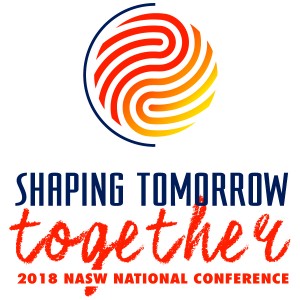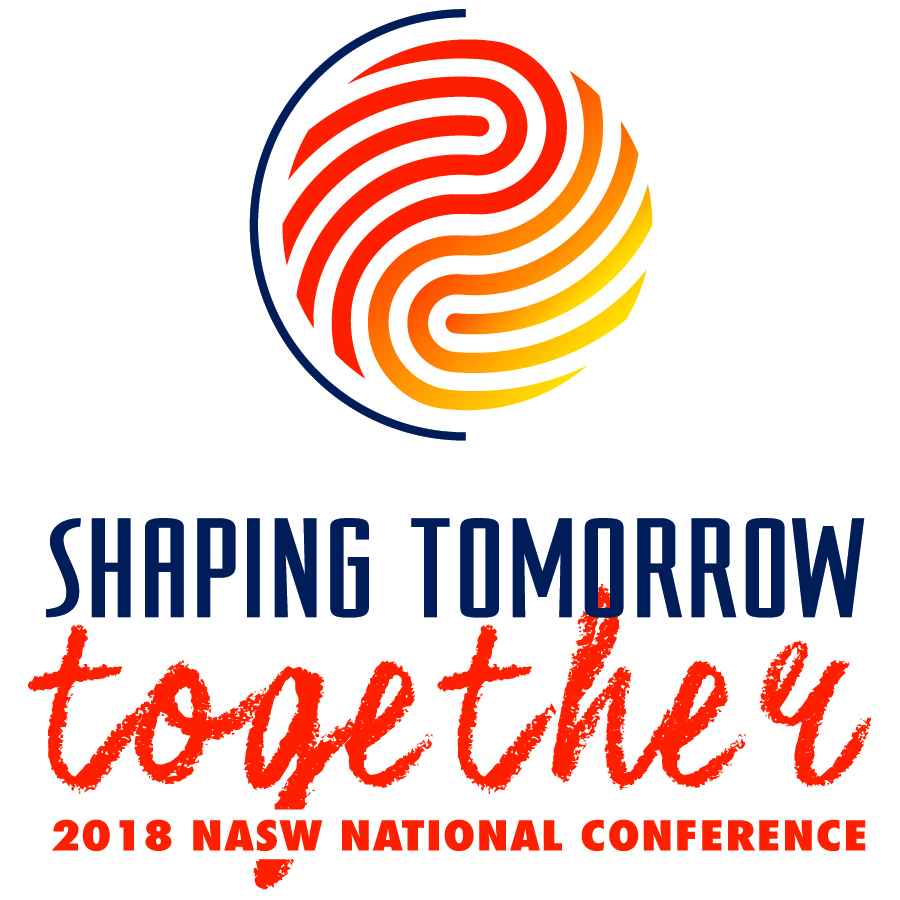 We are excited to announce our 2018 Pre-Conference Workshop schedule. The 2018 conference is slated for June 20-23, in Washington, D.C. It is the ultimate gathering of more than 2,000 social workers and like-minded individuals.
We are excited to announce our 2018 Pre-Conference Workshop schedule. The 2018 conference is slated for June 20-23, in Washington, D.C. It is the ultimate gathering of more than 2,000 social workers and like-minded individuals.
Our conference provides wonderful opportunities to build your social work community, participate in unique professional development seminars, earn 20+ CEUs, and hear renowned keynote speakers – including CNN commentator Van Jones, our 2018 opening keynote presenter; and, New York Times best-selling author, Gretchen Rubin, our 2018 closing presenter.
We are very pleased to provide you with our Pre-Conference Workshop offerings (three CEUs available for these workshops):
- Strategies For Professional Self-Care Across Your Career – Fostering and sustaining professional resilience is essential for social workers who are routinely exposed to trauma and loss. This workshop will prepare participants to identify, select and maximize use of self-care strategies, as well as identify and contribute to resilient workplaces in their roles of practitioners, supervisors, and administrators.
- Ethics And Risk Management In The New Era of Social Work – This session, developed especially for social workers, is sponsored by the NASW Assurance Services (ASI), and describes the most significant malpractice risks in social work today and numerous methods of mitigating and reducing one’s risk of being sued for malpractice. The presentation is intended for social workers in all settings and positions, not just the clinical, therapeutic mental health setting. The session will cover key concepts in risk management, such as confidentiality and its exceptions, duty to warn, and informed consent. The seminar will reveal the major reasons why social workers are sued and what you can do about those risks.
- Reframing Communication About Elder Abuse To Enhance Practice, Policy, And Education – Recent research has found wide gaps between public and expert understandings of elder abuse, neglect, and exploitation. Closing those gaps and using appropriate communications frames can help practitioners, administrators, educators, organizers, policy advocates, and the public to advance evidence-based policies and practices to prevent, identify, and address elder abuse. During this interactive workshop, the National Center on Elder Abuse (NCEA) and the FrameWorks Institute will demonstrate how to reframe elder abuse as a social justice issue. Participants will practice applying the framing strategy in various contexts. The session will also illustrate the relationship between elder abuse and ageism, introduce participants to resources available from NCEA, and provide a brief overview of NASW’s recent work to address elder abuse, neglect, and exploitation.
- The Age Of #MeToo: Working With Survivors Of Sexual Assault And Domestic Abuse – As more and more women are coming forward to tell their stories of sexual harassment, sexual assault, and domestic abuse, it is incumbent upon social workers to have the skills necessary to work with this population. For so long, victims/survivors have felt the need to remain silent, to suffer the impacts of their experiences often in isolation. As we/they come forward in greater numbers than ever before, our profession must work to empower, to heal, and to move forward. A description of sexual harassment, sexual assault, domestic abuse and the connection between these will be provided. Trauma informed practice will be explained, and approaches to working with these clients will be discussed.
- Thriving In Private Practice – Many licensed clinical social workers transition to working in a solo or group practice during the course of their careers. What does it take to effectively run a private practice and overcome common challenges that many small businesses face? This pre-conference session will explore strategies to create a thriving private practice.
- Disasters: No Community Is Immune – Social work’s readiness to respond when a disaster occurs is more important than ever. The past year has demonstrated that no community can be considered immune to disasters. A record number of billion-dollar weather-related disasters, including hurricanes, tornados, flooding, and wildfires, occurred in 2017. Mass shootings are nearly a daily occurrence with more than 400 occurring during the year. Las Vegas was deeply impacted when a single shooter killed 59 and wounded another 441. Five Sundays later it was a small-town Texas church. Social workers in every community should be prepared for the possibility that their skill, knowledge, and experience may be needed on micro, mezzo, and macro levels. This session will explore the various roles social workers are capable of assuming when responding to a devastating disaster.
- Suicide Prevention Is Everyone’s Business – This session will focus on efforts to combat the suicide epidemic through the U.S. Department of Veterans Affairs, Department of Defense and broader efforts in health care. The presentation will share the latest suicide data, initiatives to prevent suicide, public and private partnerships, postvention techniques, and efforts to support and educate clinicians, friends, and families in the Veteran community and beyond.
- A Closer Look At NASW Cultural Competence Standards And Indicators: A Deeper Dive For Contemporary Social Work Practice Contexts – Leadership and cultural competency skills are essential components of successful interventions with individuals, families, and communities. This interactive pre-conference workshop provides a deep dive into specific standards of the revised 2015 NASW Standards and Indicators for Cultural Competence in Social Work Practice. The session will examine the challenges and complexities of culturally competent practice in the current sociopolitical context. It will delve into the implications of Standard 1 – Ethics and Values, Standard 2 – Self – Awareness, Standard 8 – Professional Education, and Standard 10 – Cross-cultural Leadership. This workshop will address micro, mezzo, and macro practice perspectives.




